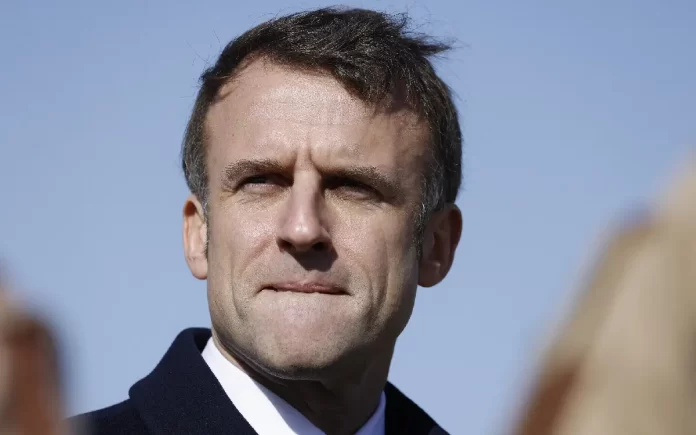Paris: In a bold statement, French President Emmanuel Macron underscored the necessity for Europe to brace itself for potential conflict in the face of escalating tensions with Russia over Ukraine. Characterizing President Vladimir Putin’s Russia as an adversary with expansionist ambitions, Macron cautioned that should Moscow prevail in Ukraine, it would embolden further aggression beyond its borders.
Macron’s remarks, delivered in a televised interview primarily intended for a domestic audience, come amid a contentious debate surrounding France’s stance on the Ukrainian crisis. The French leader’s earlier suggestion of potential ground troop deployment in Ukraine had sparked controversy, with reactions ranging from cautious distancing to outright support, particularly from Eastern European nations.
“If Russia wins this war, Europe’s credibility will be reduced to zero,” Macron asserted, responding to criticism from opposition leaders who characterized his stance as hawkish. He firmly rebutted their objections, emphasizing that abstaining or voting against support for Ukraine amounted to choosing defeat over peace.
The abstention of Macron’s main opposition party, led by Marine Le Pen, during a recent parliamentary vote on a security pact with Ukraine, alongside the dissent from the hard-left France Unbowed party, further underscored the divisions within French politics regarding the Ukrainian crisis.
“I don’t want to do so. I want Russia to stop this war and retreat from its positions and allow peace… I’m not going to give visibility to someone who is not giving me any. This is a question for President Putin.” – Emmanuel Macron
Read More: Top US Diplomat Highlights Growing Importance of India-US Security Cooperation
Highlighting the gravity of the situation, Macron stressed that Europe must not demonstrate weakness in the face of Russian aggression. He refrained from outlining specific plans for a potential deployment to Ukraine, citing the need to maintain diplomatic pressure on Moscow. Macron’s refusal to divulge details reflected his commitment to compelling Russia to seek a peaceful resolution to the conflict.
While categorizing the Kremlin regime as an adversary, Macron stopped short of labeling Russia as an enemy. He condemned Putin’s rhetoric of nuclear threats as inappropriate, emphasizing the need for de-escalation and dialogue to resolve the crisis.
Acknowledging Ukraine’s precarious position, Macron underscored the imperative for stronger support from allies, asserting that advocating for peace did not equate to capitulating to Russian demands. Expressing hope for future negotiations with Russia, he left open the possibility of engaging with a different leadership in Moscow.
Addressing concerns about his safety amid the crisis, Macron refuted Russia’s claim of canceling a planned visit to Ukraine due to security reasons, urging skepticism toward Moscow’s assertions.
As tensions persist in Eastern Europe, Macron’s call for European readiness underscores the urgency of the situation and the imperative for collective action to deter further aggression.



